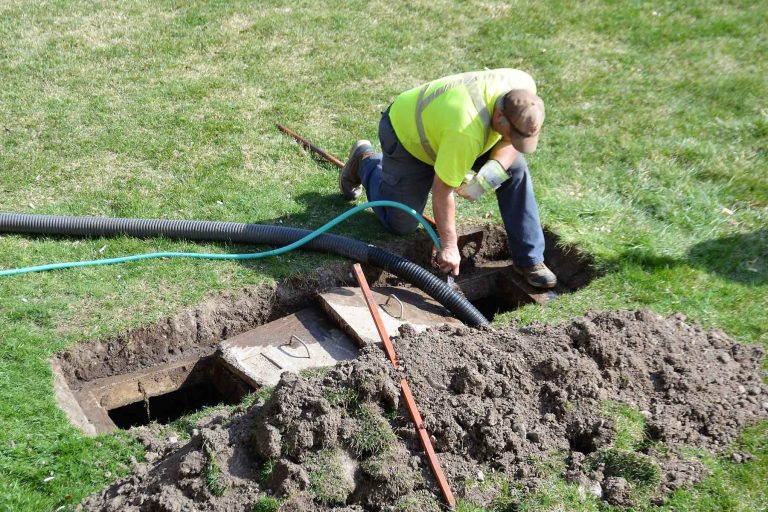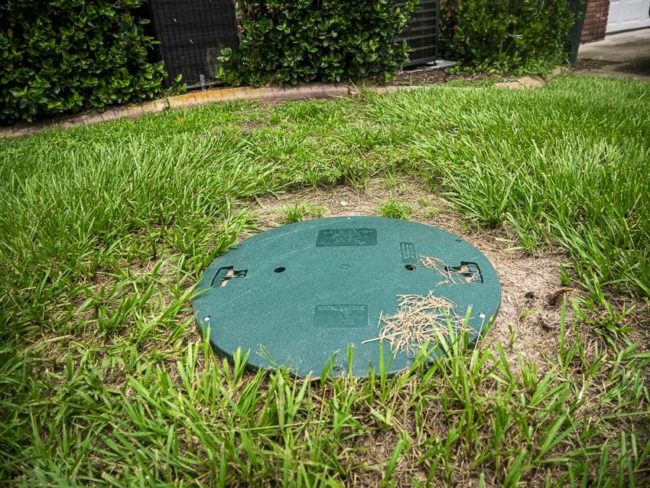Essential to Conduct Pre-Purchase Home Inspections for Septic Systems Matter
When Pre-Purchase Home Inspections for Septic Systems, it’s essential to conduct Pre-Purchase Home Inspections for Septic Systems. This critical step ensures that the septic system is functioning properly and can save you from future costly repairs. Many homebuyers overlook this inspection, assuming the system is in good condition, only to face unexpected problems later. A thorough septic system inspection can provide peace of mind and protect your investment.
Table of Contents
Key Takeaway
- Septic system inspections are crucial before purchasing a home.
- Inspections check the functionality and condition of the septic system.
- A proper inspection can prevent future high-cost repairs.
- Ensuring the septic system’s health protects your investment.
The Importance of Pre-Purchase Septic Inspections
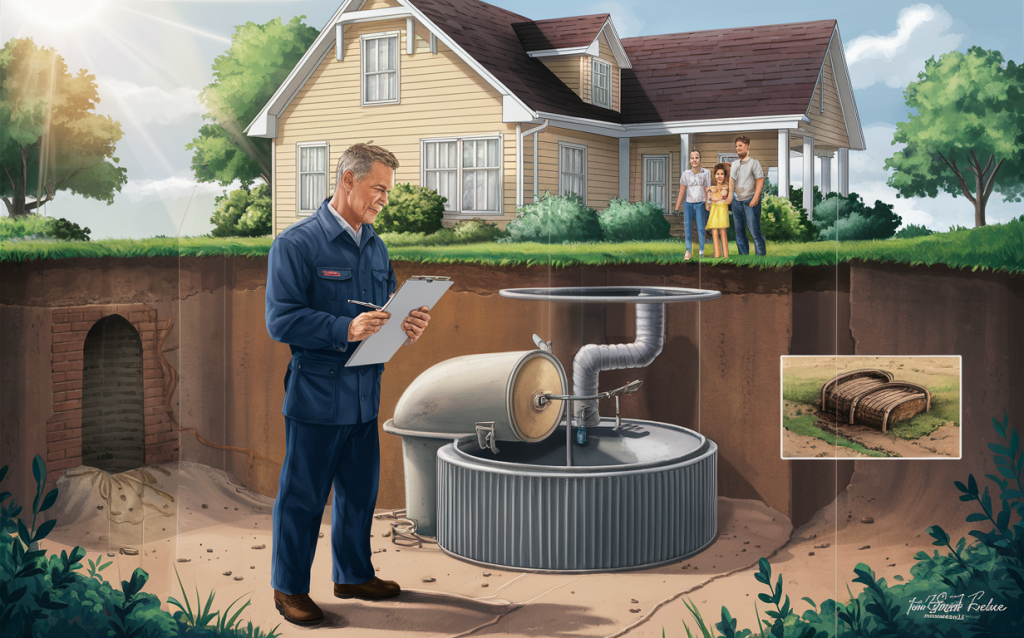
Pre-Purchase Home Inspections for Septic Systems is crucial because it evaluates the condition of the septic system, which can be complex and expensive to repair or replace. Septic systems process household waste, and if they fail, it can lead to significant environmental and health issues. A failing septic system can also be a major financial burden, often costing thousands of dollars to repair.
What is Included in a Septic System Inspection?
A comprehensive Pre-Purchase Home Inspections for Septic Systems typically includes:
- Tank inspection: Checking for leaks, cracks, and the overall condition of the septic tank.
- Drain field evaluation: Assessing the soil absorption area for signs of failure.
- Pumping records review: Verifying when the tank was last pumped and if it’s overdue.
- Component check: Ensuring all parts, including baffles and filters, are intact and functioning.
- System age and usage: Evaluating the age of the system and its usage compared to household size.
Common Issues Found in Septic Inspections
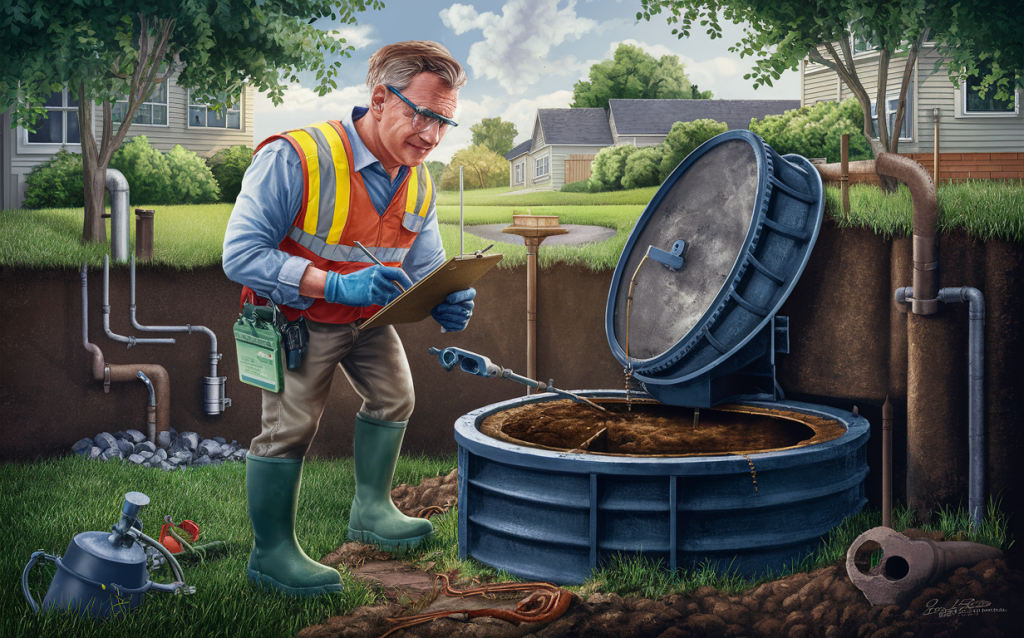
During Pre-Purchase Home Inspections for Septic Systems, inspectors often uncover a range of issues. Here are some common problems:
- Root intrusion: Tree roots can infiltrate the septic system, causing blockages and damage.
- Drain field failure: Over-saturated soil or improper drainage can lead to system failure.
- Tank damage: Cracks and leaks in the tank can lead to system inefficiencies and groundwater contamination.
- Improper installation: Systems not installed to code or industry standards can fail prematurely.
- Neglect and lack of maintenance: Infrequent pumping and poor maintenance lead to system overload and failure.
The Septic Inspection Process
A thorough Pre-Purchase Home Inspections for Septic Systems typically follows these steps:
- Initial Consultation: The inspector gathers information about the system’s history and previous issues.
- Site Evaluation: Inspectors check the location and layout of the system.
- Tank Access: The tank is located and accessed.
- Visual Inspection: Checking the tank’s interior and exterior for obvious issues.
- Liquid Levels: Measuring liquid levels to ensure the system is processing waste correctly.
- Pumping: The tank is pumped to allow for a detailed inspection.
- Drain Field Check: Evaluate the soil absorption area for signs of failure.
- Detailed Report: Providing a comprehensive report with findings and recommendations.
Common Septic System Components and Their Functions
| Component | Function |
|---|---|
| Septic Tank | Separates solids from liquid waste and begins the treatment process |
| Drain Field | Distributes liquid waste into the soil for further treatment |
| Baffles | Prevents solids from entering the drain field |
| Distribution Box | Evenly distributes wastewater to the drain field |
| Filters | Traps large particles to prevent clogging |
Benefits of a Pre-Purchase Home Inspections for Septic Systems
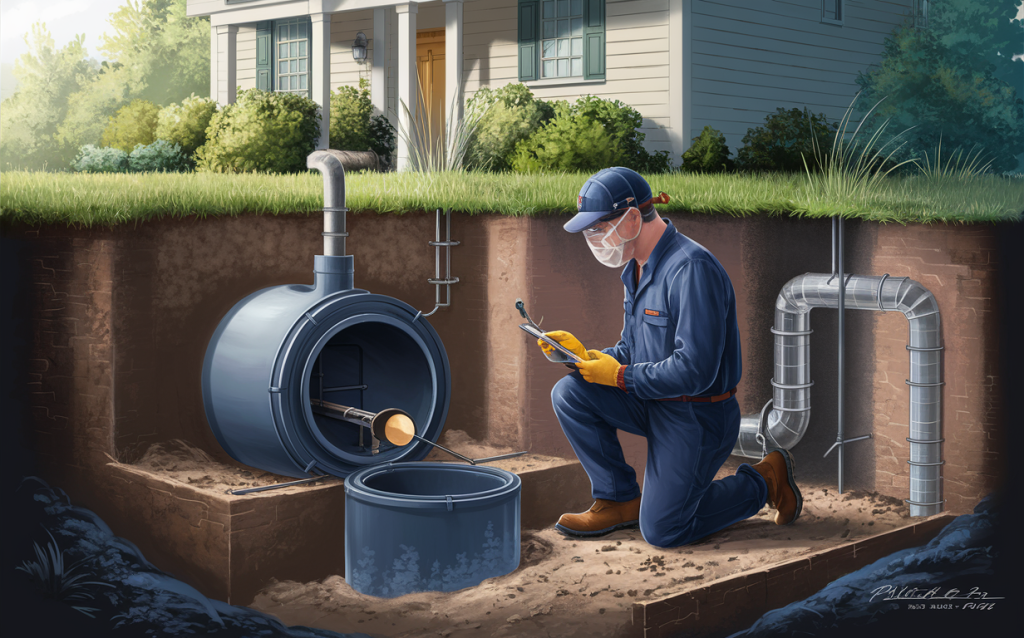
Conducting a Pre-Purchase Home Inspections for Septic Systems has several benefits:
- Financial Protection: Avoid costly repairs by identifying problems early.
- Peace of Mind: Know the system is functioning properly.
- Negotiation Leverage: Use inspection findings to negotiate the purchase price or request repairs.
- Compliance Assurance: Ensure the system meets local health and safety codes.
- Environmental Protection: Prevent potential environmental hazards from a failing system.
How to Prepare for a Pre-Purchase Home Inspection for Septic Systems
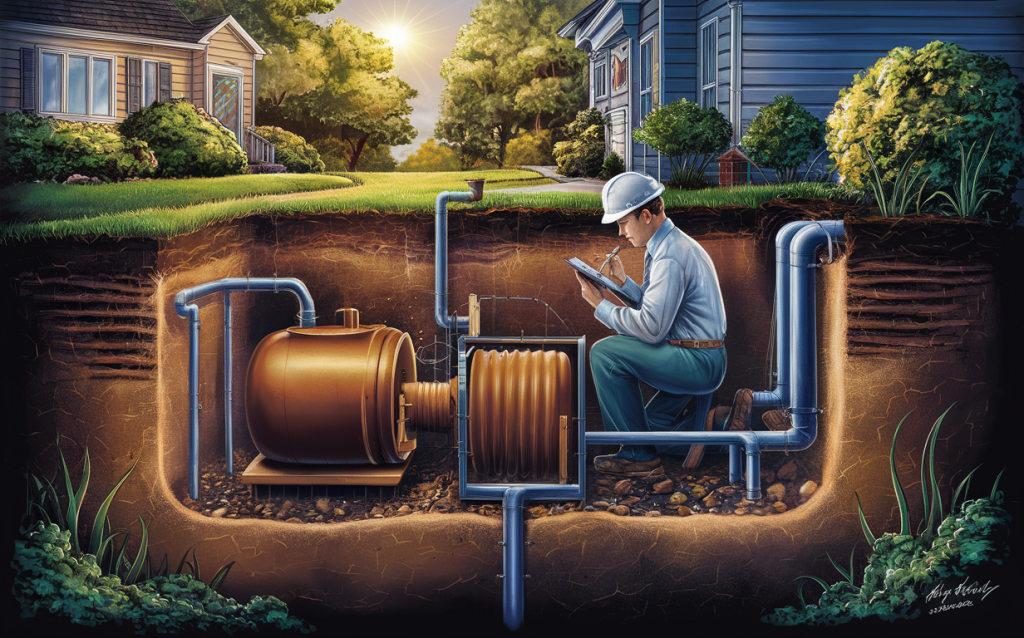
Preparing for a septic inspection can streamline the process and ensure thorough results:
- Locate Documents: Gather previous inspection reports, maintenance records, and pumping schedules.
- Identify System: Know the location and layout of the septic system.
- Clear Access: Ensure the inspector can easily access the tank and drain field.
- Notify Inspector: Inform the inspector of any known issues or past repairs.
Indicators of Septic System Problems
- Slow Drains: Water drains slowly from sinks, tubs, and toilets.
- Foul Odors: Persistent bad smells around the septic tank or drain field.
- Lush Grass: Unusually green or thick grass over the drain field.
- Standing Water: Puddles or wet areas near the septic system.
- Backups: Sewage backups into homes or slow flushing toilets.
When Should You Schedule a Pre-Purchase Home Inspection for Septic Systems?
Pre-Purchase Home Inspections for Septic Systems during the home-buying process is ideal. Inspections are also recommended when:
- Buying a home: Always inspect the septic system before purchasing.
- Experiencing issues: Any signs of system problems warrant an immediate inspection.
- Regular maintenance: Routine inspections every three to five years to ensure system health.
Typical Costs for Septic System Components
| Component | Estimated Cost ($) |
|---|---|
| Septic Tank | 3,000 – 7,000 |
| Drain Field | 2,000 – 10,000 |
| Baffles | 100 – 300 |
| Distribution Box | 500 – 1,500 |
| Filters | 100 – 500 |
Choosing a Qualified Septic Inspector
Selecting a qualified inspector is crucial for an accurate assessment. Consider these factors:
- Certifications: Ensure the inspector is certified by recognized organizations.
- Experience: Look for inspectors with extensive experience in septic system evaluations.
- References: Request and check references from previous clients.
- Reviews: Read online reviews to gauge the inspector’s reputation.
- Insurance: Confirm that the inspector has appropriate insurance coverage.
Key Questions to Ask Your Septic Inspector
- What is your experience with septic inspections?
- Are you certified and insured?
- What will the inspection process include?
- How long will the inspection take?
- When can I expect to receive the report?
Interpreting Your Pre-Purchase Home Inspections for Septic Systems Report
The inspection report will detail the condition of your septic system and recommend any necessary repairs or maintenance. Key sections of the report typically include:
- System Overview: General condition and description.
- Findings: Specific issues or problems identified.
- Recommendations: Suggested repairs or maintenance actions.
- Photos: Visual documentation of issues.
By understanding and acting on your inspection report, you can address any issues proactively, ensuring the longevity and functionality of your septic system.
Conclusion
A pre-purchase home inspection for septic systems is a critical step in the home-buying process. It ensures that the septic system is in good working order, protecting you from potential future expenses and headaches. By understanding what to expect from the inspection and how to interpret the findings, you can make an informed decision and safeguard your investment.
If you’re in the Middletown, NY area and need a professional septic inspection, United Sewer & Septic is here to help. With over 30 years of experience and certified by NEHA, we provide thorough and reliable septic inspections. Call us today at (888) 845-2564 to schedule your inspection and ensure your new home’s septic system is in top condition.


